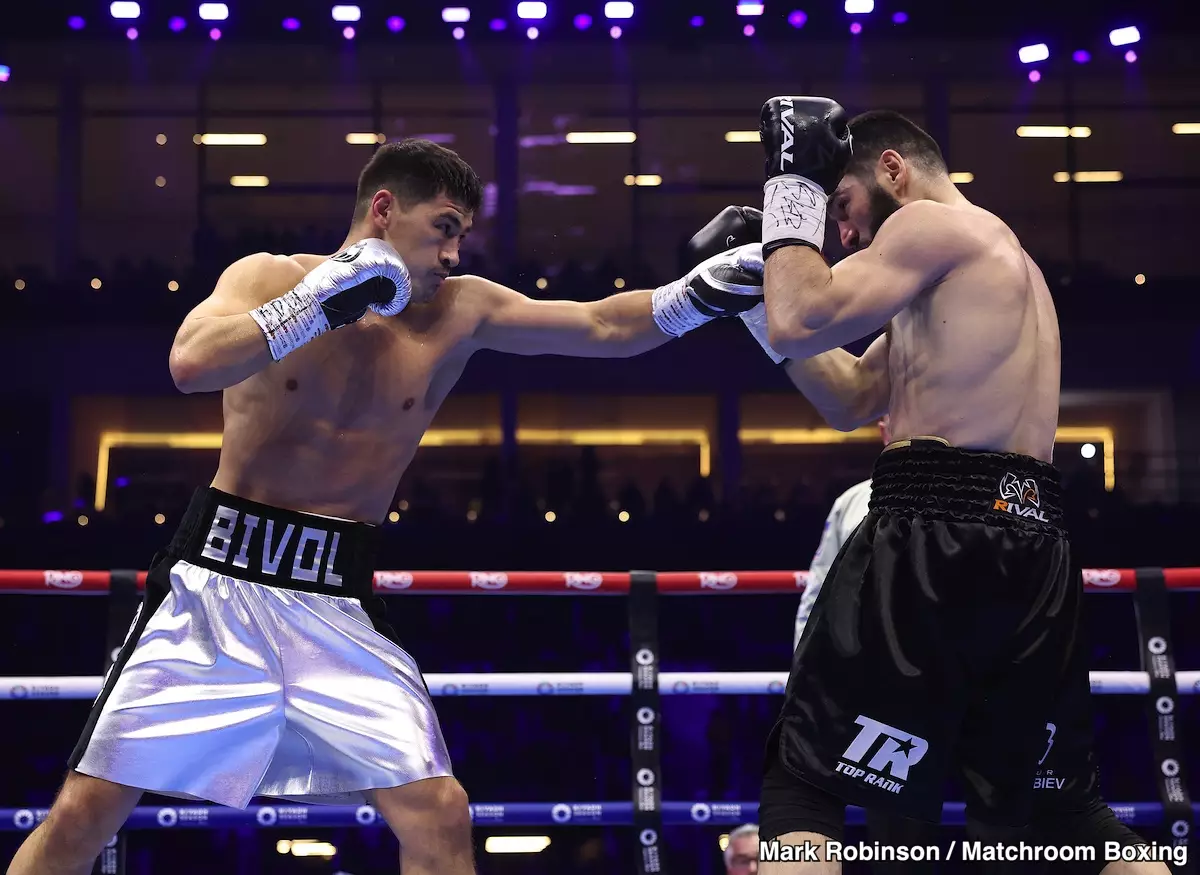Dmitry Bivol’s recent victory against Artur Beterbiev in their much-anticipated rematch has ignited a spectrum of conversations regarding the nature of boxing and the essence of competitive spirit. Bivol (24-1, 12 KOs) claimed a majority decision victory over the undisputed light heavyweight champion (21-1, 20 KOs) in a bout held at the lavish Kingdom Arena in Riyadh, Saudi Arabia. However, the fight’s anticlimactic atmosphere left spectators wanting more, leading to concerns about whether entertainment or strategy should take precedence in the sport.
Bivol’s fighting style throughout the match leaned heavily on a defensive approach that relied on movement and evasion rather than aggression. Bivol circled the ring, effectively employing his lateral movement to stay out of Beterbiev’s reach. While this tactic secured him the victory, it did so at the expense of the audience’s engagement and excitement. The first few rounds showcased Bivol’s tactical prowess as he deftly sidestepped Beterbiev’s attacks, but as the fight progressed, the crowd’s energy dwindled. More than once, fans were left wondering whether they were witnessing a boxing match or a game of tag.
The judges awarded scores of 114-114, 116-112, and 115-113, culminating in a majority decision for Bivol. Critics argue that the scorecards reflect a possible bias towards Bivol’s defensive strategy rather than a straightforward assessment of effectiveness. Many observers noted that Beterbiev appeared to win a fair share of rounds, yet his inability to secure a definitive lead in scores calls into question the subjectivity inherent in boxing judging. The fight’s narrative seemed manipulated by external influences as well, specifically the comments surrounding a potential trilogy that could position both boxers in greater financial opportunities.
One notable aspect of Bivol during the bout was his visibly slimmer physique compared to their first encounter. This change could be attributed to his extensive training regime aimed at enhancing his endurance over 12 rounds. While his stamina allowed him to evade Beterbiev effectively, it arguably compromised the power behind his punches. Opponents of Bivol’s style might contend that he sacrificed knockout power for survival, emphasizing the debate surrounding the tactical versus the visceral nature of boxing. In many ways, Bivol’s approach mirrored that of fighters like Shakur Stevenson, who prioritize defensive maneuvers over signature knockouts.
With Turki Alalshikh advocating for a trilogy bout, it becomes evident that the boxing world remains entangled in the ramifications of this matchup. The prospect of a rubber match could either lead to an overdue resolution or further amplify the discussions about the quality of combat in professional boxing. As fans digest the nuances of this recent clash, it is clear that Bivol’s win has set the stage for ongoing debates about what constitutes a legitimate victory in the eyes of the sport.
While Dmitry Bivol’s tactical brilliance secured him a majority decision victory, the rematch with Artur Beterbiev raises essential questions about boxing’s evolving landscape. Fans are left to ponder whether strategic wins can resonate in an arena that often thrives on the thrill of decisive action.

